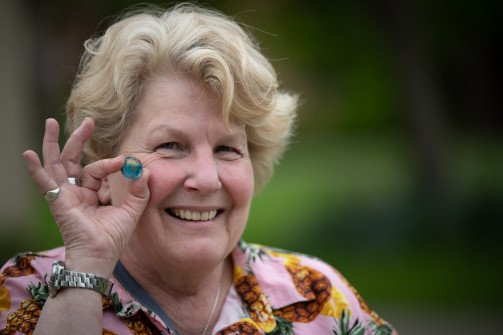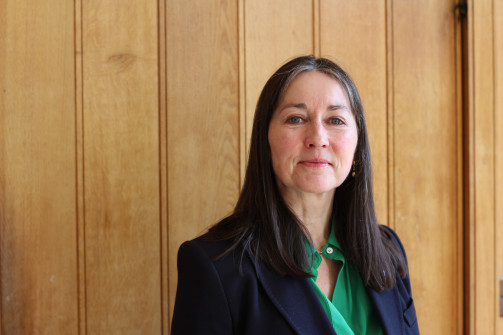"I find the world endlessly interesting" - Sandi Toksvig OBE delivers this year's Lee Lecture


BSc PhD FMedSci
Professor Nick Thomson is a globally recognised genomics expert, especially in pathogen evolutionary biology and population dynamics. His seminal work has redefined the evolutionary understanding of Cholera, a disease in its 7th pandemic, which affects thousands worldwide. He identified the ‘7PET’ lineage of Vibrio cholera as responsible for all major cholera epidemics since the 1960s

Shifting focus from common environmental sources for cholera to highlight the role of human-to-human transmission, Nick's research opens new opportunities for intervention, transmission blocking, and cholera 'track and trace' tools.
His laboratory has a global influence on policy, collaborating with the Pan-American Health Organization and the WHO Global Taskforce for Cholera Control (GTFCC). Nick's role in the GTFCC working groups and Independent Review Panel for National Cholera Plans for Control or Elimination (NCPs) shapes current and future cholera control strategies.
Beyond Cholera, his work on Shigella infections with macrolide resistance informed the universally adopted UK guidelines for managing 'Men who have Sex with Men' with sexually transmissible enteritis and proctitis symptoms.
Deeply committed to improving global health, Nick builds long-term global partnerships, promotes equitable data use and sharing, and increases research capacity in low and middle income countries.
During the pandemic he helped establish genomic surveillance of SARS-CoV-2 in Bangladesh, combining genome data with population mobility data from social media and mobile phone operators. This approach, a world first, was used by policymakers to direct control strategies and helped deliver more powerful genomic tools for disease control.

A display of works from the Bradshaw-Bubier studio pottery collection.

Wolfson College's inaugural Ian Cross Instrumental Scholarship Concert will be given by pianist Samuel Foo with works by Bach, Brahms and Ravel.

How did architecture schools respond to the need to rebuild Britain after World War Two?

An opportunity for the Wolfson community to discover and engage with the diverse and important sustainability research happening across College by its Fellows and Early Career Researchers.

Join Wolfson postgraduate students as they talk about their research in an informal evening of interesting presentations and friendly discussion – complete with wine and cheese!







